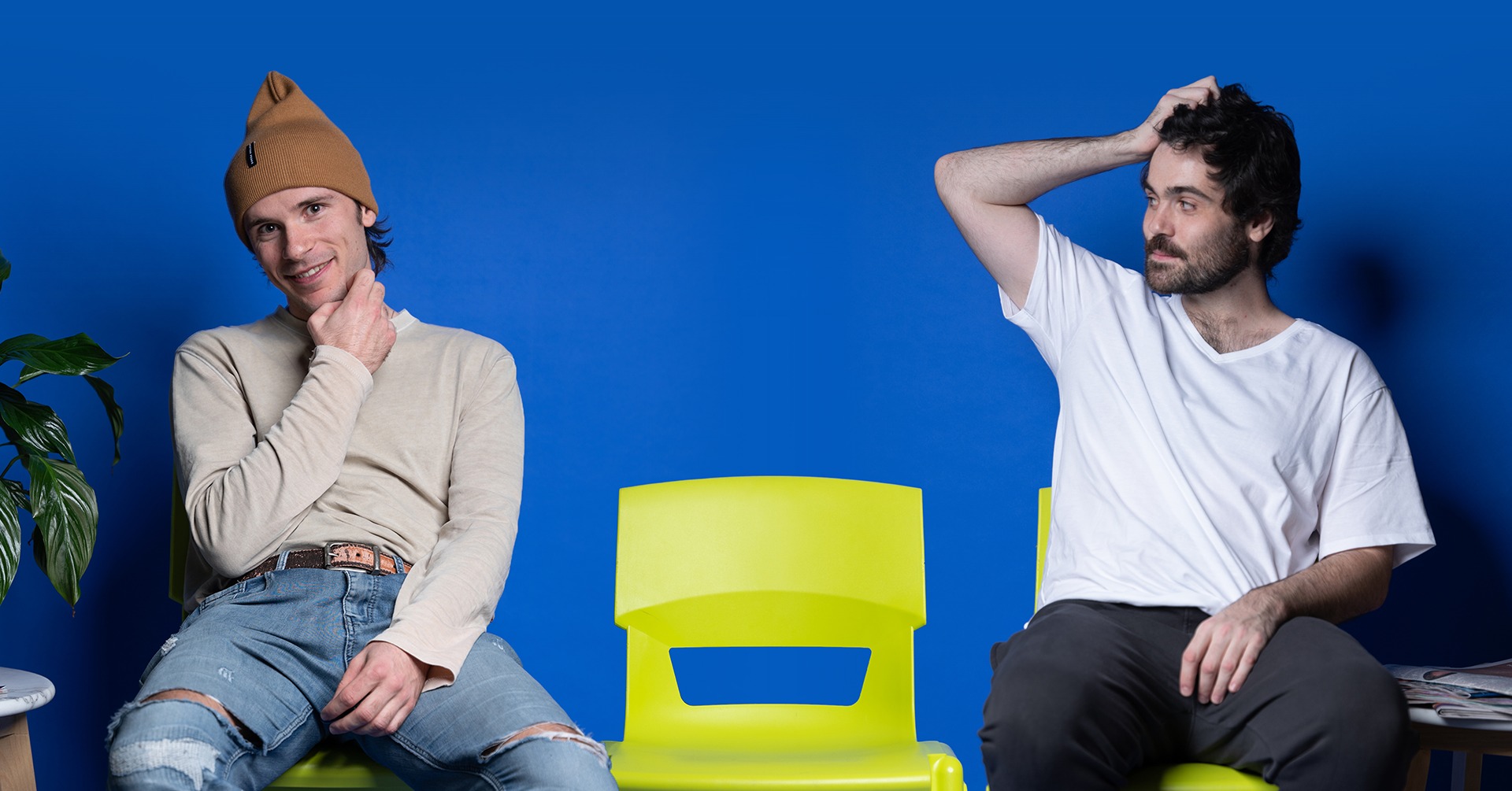Let me start by saying that I was not expecting to contemplate the multiplicity of being and seeing in the world on a quiet Tuesday night. Perhaps the universe knew that schizophrenia (among other conditions) has recently become a topic of regular conversation in my circle of friends. Yet here I was, confronted by what is self-described as a poetic memory play, which encapsulates the interrupted experience of this very condition and offers a glimpse into the world as seen (and heard) by people I hold dear. Writer and lead, Dan Goodwin, is adept at finding humour in the darkness, writing themself into a poignant, but funny, tragedy of the mind, surrounded by a cast of characters both tangible and intangible, blurring the line between reality and abstraction, truth and fiction.
The show is running late due to technical issues. At this point, I’ve finished my cola, and my phone battery is fading, so I resort to tapping my leg, watching people filter into the Basement, with eyebrows raised and chins jutting upwards. This is the cool crowd, the ones I am rarely privy to, the ones who talk about their writing progress for the day and remain optimistic despite their raised pitch, revealing that writing is the creative equivalent of the pangs of childbirth. I start to notice that the looser one’s clothing, the more artistic one appears. I regret wearing these tight pants. Now I feel like everyone around me is also suddenly aware of my pants and the mosaic of unfinished drafts on my desktop. Thankfully, we enter the Studio.
I’m amazed at Schizo (Dan Goodwin) and Chrome Dome (Georgie Llewellyn) remaining remarkably still while the audience chatter rises and falls. The woman beside me shows her friend the array of sofas in contention for prime position in her living room. The friend reacts in the only way one can when shown an array of overpriced sofas – a polite but bored nod. I’m yearning for the show to begin so I no longer have to listen to couch talk. Then the string of hanging lights behind the stage light up to a crescendo, the chatter dies (thank God), and the show begins.
Within minutes, we are laughing. The charm of this play rests in the chemistry between Schizo and Chrome Dome, a playfulness, a back and forth, a rhythm that is hard to manufacture. I am weirdly happy to see a queer relationship complicated by very real problems, like the death sentence of cancer worn on an emaciated body. An argument over whether it’s Bow-ie or Bo-wie becomes whether cinnamon should have been a Spice Girl, and the playful tension this creates builds towards a will-they-won’t-they moment that ultimately leaves us hanging – not for the societal pressure we have grown accustomed to seeing queer characters subjected to, but for the internal malaise experienced by these very human characters.
The cast extends to include various lighting fixtures representing the characters in Schizo’s head, each with their own personality, each with their own gag. When Schizo breaks the fourth wall, we as the audience become another character in his head, one that he supposedly narrates his life to. These narrations are poetic monologues, interrupted, contradicted and sometimes seconded by the voices that populate his head. Sometimes these voices materialise, as in the case of the doctor (Sahil Arora), and other times Schizo accidentally blurts out parts of inner conversations, complete with perfect comedic timing.
We almost never get a complete thought. We do, however, get a number of rants – about beanies, doctors exposing their unmentionables and ridiculous oversized ties – each one funnier than the last. It’s these details that make the writing shine, oftentimes overlooked until you, yourself, are seated in a waiting room trying to convince yourself that you are ‘normal’. Goodwin’s writing is witty, biting and unapologetic. The moments of poetry feel earned, with an emphasis on the minutiae of being in love, the straightness of a back, the blueness of ink, and, of course, various bodily fluids. An audience member audibly squirmed at the mention of cum stains, to which Schizo doubled down at the next mention. This is contrasted with the lowbrow colloquial exchanges between Schizo and his friend (Brit O’Rourke), who reveal that the worst trait imaginable in a man is being named Bruce.
The play finally rewards us with an arresting tender moment that rounds out the experience, and as the lights fade to black, we erupt into a standing ovation. Something can be said of the reciprocation of energy back towards a cast who laid themselves bare in illuminating this often invisible, but very real facet of the human experience. Goodwin ought to be commended for such vulnerability. Often we use humour to deflect away from the parts of us we do not want the world to see. In the case of Chrome Dome and Schizo, Goodwin uses humour to draw us into those same parts, and to find meaning in them; to question the way we label, categorise and pathologise people who have a unique way of being in the world – a far more important contribution than sofa talk.

A cancer patient. A schizophrenic. A health ward. Bad news. Shit receptionist. Sexual tension.
Doctor with a moose knuckle. Matted hair patient.
Late nights. Phone calls. True story.
Sort of…
Chrome Dome and Schizo is a fusion of poetry and memory play. A recollection and preservation of a 4 month-long love story … with a ghost. A gay love story! A break up in the most dramatic way possible.
Chrome Dome is on at The Basement Theatre in Tāmaki Makaurau until Saturday 20 August. You can purchase tickets from iTicket.



